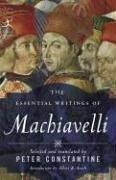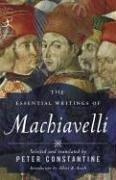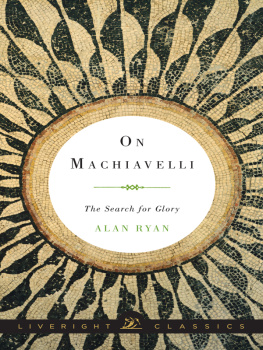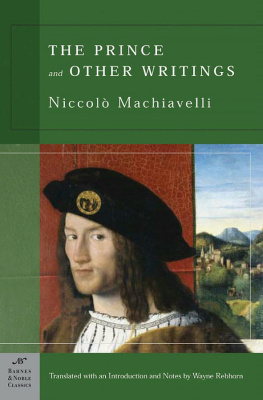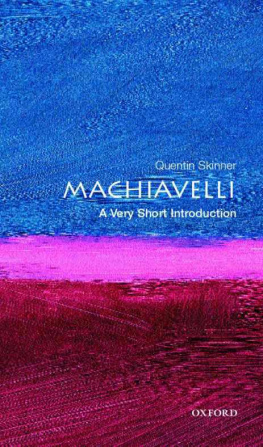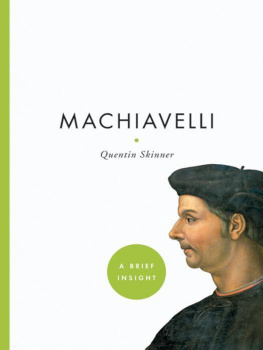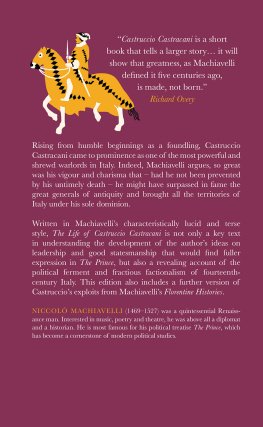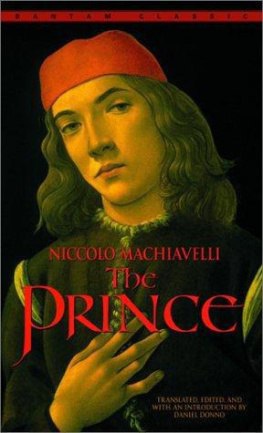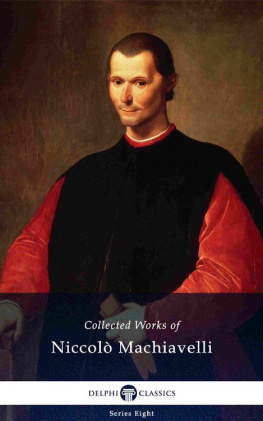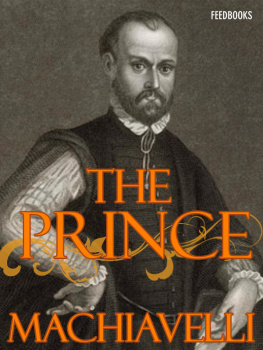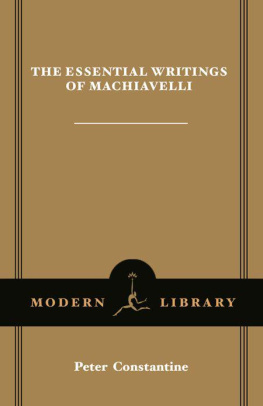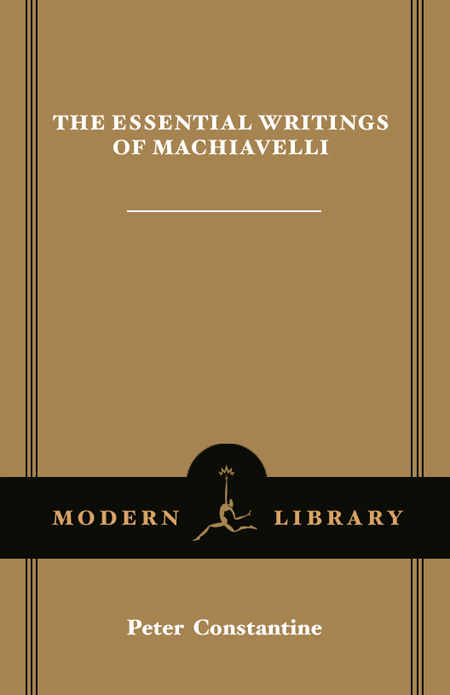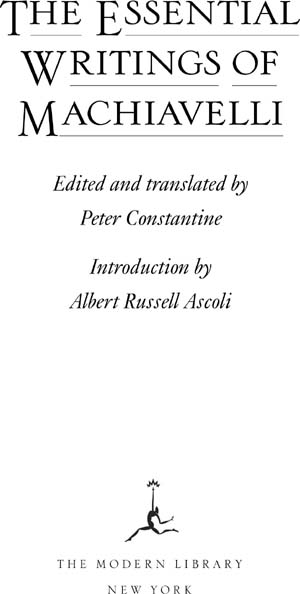I NTRODUCTION
Albert Russell Ascoli
In his second and lesser known play, Clizia, Niccol Machiavelli imagines history, following the late Greek historian Polybius and ultimately Plato, as a cyclical process: If in the world the same men were to return, as the same events recur, a hundred years would not pass before we would find ourselves once more together, doing the same things as we do today Machiavelli, who believed strongly in the utility of reading the past in order to understand, and to shape, the present, nonetheless speaks in the verbal mode of condition-contrary-to-fact, suggesting the improbability of his hypothesis and ironically undermining his claims even as he makes them. It is this voicewise, self-critical, sometimes quite bitter, and often very funnythat the present volume offers up to be heard, as it rarely is by an English-language public, in something very near its full range, power, and beauty.
We no longer believe that history moves in cycles, and we are beginning to lose faith in the model of relentless forward progresstechnological, economic, sociopoliticalthat has predominated, at least in the imperial West, since the Enlightenment. And we have responded to this loss of our principal models of historical understanding by forgetting the pastor chopping it into postmodern fragmentsor turning it into grotesque fantasies of hermetic codes that unlock a violently repressed past (which, oddly enough, then looks very like the present). If there is an idea of history we have not forgotten, it is the Christian, or Marxian, idea of historys endof the Apocalypse, or of the withering away of the state. Under such conditions, Machiavelli still has much to offer, whether he is seen as constituting the origins of our current circumstances, as the father of modern politics and a sponsor of what is known in some quarters as secular humanism, or instead viewed as someone experiencing, and recording, a crisis in world order and sociopolitical institutions not entirely unlike the one we ourselves now face.
Unlike his contemporaries Michelangelo, Leonardo da Vinci, and the epic poet Ludovico Ariosto, Niccol Machiavelli (14691527) does not tempt us with the possibility of flight into a past both simpler and more beautiful than our own world. Rather, he has consistently been figured as the originator of ideas and practices that have led directly to the present state of things. On the one hand, his exaltation of the Roman Republic (as against the later Empire), his links to the last stirrings of anti-Medicean Florentine republicanism, and his violent critique of the Catholic Churchs role in Italian politics have been understood as throwing open the gates to a secularization of the political that led to English parliamentary government and thence to the American and French revolutions. And this view finds real support in his work, particularly on the pages of his long commentary on Livys Roman Histories, The Discourses, where, for example, he exposes Julius Caesars power grab (and the literary propaganda machine that legitimized it) and argues, against all received wisdom of the time, that the people understand the world better than the Prince.
On the other hand, he has been linked, and not without reason, to the degradation and delegitimization of a politics decoupled from moral imperatives and transcendent religious principles. Already in Elizabethan England he is the murderous Machiavel dramatized in the diabolical shenanigans of Shakespeares Richard III, not to mention Iago, and frequently tiedironicallyto the Protestant demonization of the corrupt papacy. For Hannah Arendt, and even more for Leo Strauss, he is the patron saint not of modern democracy, but rather of demagogic totalitarianisms, from Fascism and Nazism to Stalins Soviet Union. Here also, and more obviously, there is a great deal of supporting evidence: for example, in the famous dicta from The Prince that all armed prophets were successful, while unarmed prophets came to ruin; a man is quicker to forget the death of his father than the loss of his patrimony; a wise [prince] will not keep his word; and so on. Or in the exemplary role conferred on the bloody state-building of Cesare Borgia, son of Pope Alexander VI. Or in the mockery of Roman Lucretias chastity and suicideout of which Livy says the Roman Republic arosevia the adulterous seduction and corruption of Florentine Lucrezia in his darkly comic play

